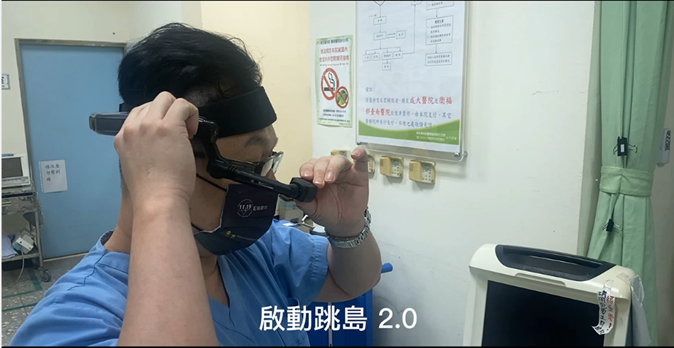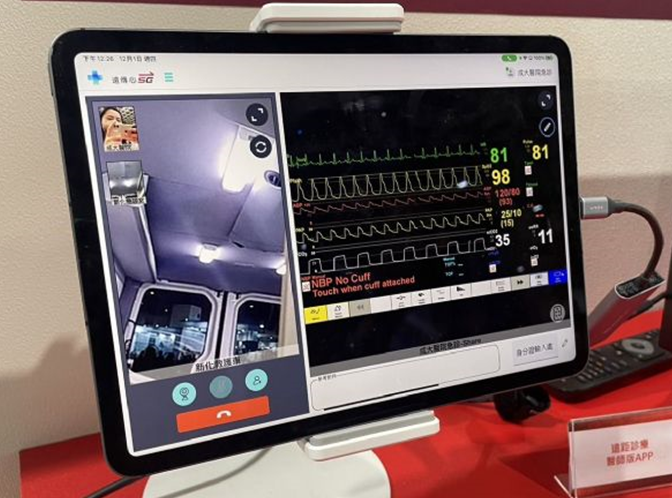With the rise of remote health care over the last 2 years as a result of the COVID-19 pandemic, the emergency department of National Cheng Kung University Hospital (NCKUH) has upgraded its “Island-Hopping Strategy,” producing version 2.0 through collaboration with communications companies, and has established a Multiparty Consultation Platform of Fifth-Generation Smart Mobile Technology for Prehospital Emergency Medicine, introducing smart medical devices based on new technologies related to remote physiologic monitoring and wearable smart glasses or hats. Fifth-generation (5G) mobile emergency medical care works provides a first-person view of the ambulance personnel before an ambulance’s arrival at the hospital, and information regarding the patient’s physiological symptoms, the emergency treatment applied, and the status of the ambulance transfer are instantly integrated to support emergency physicians at NCKUH, enabling them to adequately prepare for the arrival of the patient at the hospital and even to directly conduct on-site communication and guidance. In this manner, the patient’s physiologic stability can be monitored and their recovery preplanned without losing any precious time.
The 5G ambulance is equipped with a physiologic monitoring device, which transmits the patient’s physiological data to the evacuation hospital in real time, including blood pressure, heartrate, and blood oxygen data as well as electrocardiogram data and graphics. Consequently, emergency physicians can simultaneously monitor the transferred physiological data, conduct a medical assessment, and provide guidance on mobile emergency medical care, thereby accelerating the process of medical treatment. Furthermore, smart wearable imaging devices with various viewing angles worn by ambulance personnel enable the real-time assessment of the patient’s condition through images transmitted to NCKUH. This barrier-free medical communication device supports medical personnel’s monitoring of and medical service provision to the patient, enabling remote physicians to provide medical guidance with enhanced precision.
In line with the Plan for Establishing Remote Health Care in Remote Areas proposed by Taiwan’s Ministry of Health and Welfare (MOHW), the “Island-Hopping Strategy 2.0” was first applied to the referral of patients with acute or severe illnesses at the MOHW-affiliated Xinhua Branch of Tainan Hospital and at Kuo General Hospital. In the future, through an integration of effective approaches and development trends of smart medical care, the “Island-Hopping Strategy” is expected to facilitate the provision of high-quality smart medical services.

